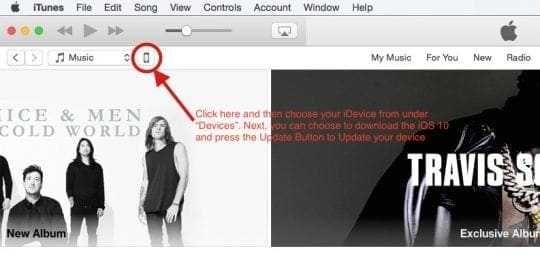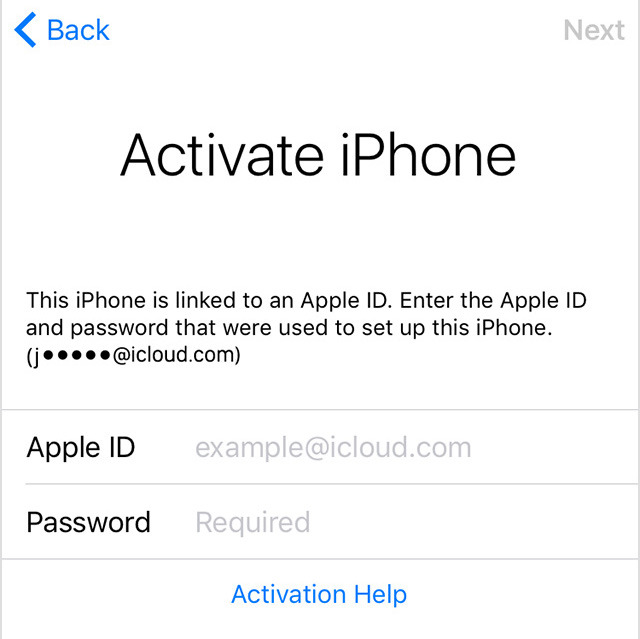Activation Server Is Temporarily Unavailable Ipad Pro
GOP Data Firm Accidentally Leaks Personal Details of Nearly 2. Million American Voters. Political data gathered on more than 1. US citizens was exposed this month after a marketing firm contracted by the Republican National Committee stored internal documents on a publicly accessible Amazon server. The data leak contains a wealth of personal information on roughly 6. US population. Along with home addresses, birthdates, and phone numbers, the records include advanced sentiment analyses used by political groups to predict where individual voters fall on hot- button issues such as gun ownership, stem cell research, and the right to abortion, as well as suspected religious affiliation and ethnicity. The data was amassed from a variety of sources—from the banned subreddit r/fatpeoplehate to American Crossroads, the super PAC co- founded by former White House strategist Karl Rove.
Deep Root Analytics, a conservative data firm that identifies audiences for political ads, confirmed ownership of the data to Gizmodo on Friday. Kl Gangster 2 Full Movie Download Mkv Movie. Up. Guard cyber risk analyst Chris Vickery discovered Deep Root’s data online last week. More than a terabyte was stored on the cloud server without the protection of a password and could be accessed by anyone who found the URL. Many of the files did not originate at Deep Root, but are instead the aggregate of outside data firms and Republican super PACs, shedding light onto the increasingly advanced data ecosystem that helped propel President Donald Trump’s slim margins in key swing states. Although files possessed by Deep Root would be typical in any campaign, Republican or Democratic, experts say its exposure in a single open database raises significant privacy concerns. Data Trust received over $6.

RNC during the 2. Open. Secrets. org, and its president, Johnny De. Stefano, now serves as Trump’s director of presidential personnel. The Koch brothers’ political group Americans for Prosperity, which had a data- swapping agreement with Data Trust during the 2. Target. Point, whose co- founder previously served as director of Mitt Romney’s strategy team. Each file offers rich details about political ads—estimated cost, audience demographics, reach, and more—by and about figures and groups spanning the political spectrum. There are files on the Democratic Senatorial Campaign Committee, Planned Parenthood, and the American Civil Liberties Union, as well as files on every 2.
Republicans included. What’s more, the Kantar files each contain video links to related political ads stored on Kantar’s servers.
Spreadsheets acquired from Target. Point, which partnered with Deep Root and GOP Data Trust during the 2. Target. Point’s data seeks to resolve questions about where individual voters stand on dozens of political issues.
For example: Is the voter eco- friendly? Do they favor lowering taxes?

Do they believe the Democrats should stand up to Trump? Do they agree with Trump’s “America First” economic stance? Pharmaceutical companies do great damage: Agree or Disagree? The details of voters’ likely preferences for issues like stem cell research and gun control were likely drawn from a variety of sources according to a Democratic strategist who spoke with Gizmodo.“Data like that would be a combination of polling data, real world data from door- knocking and phone- calling and other canvassing activities, coupled with modeling using the data we already have to extrapolate what the voters we don’t know about would think,” the strategist said.
The crowd cheered in California on Monday, when Apple announced HomePod, a new smart speaker armed with Siri, the company’s virtual assistant. Some iPad 2 owners have found that their devices wouldn't turn on after installing iOS 9.3. Here's how to fix the problem, and activate an older iPad after installing. Update: Some people are experiencing a problem with iOS 9.3 that freezes their device if they click on links to websites in their emails. We've got a guide on how to.
This common error happens when folks try to update their iPad and iPhone to the latest available iOS version. If you are experiencing this issue, please note that you. My Forbes column focuses on the tech. Deep Root Analytics, a conservative data firm that identifies audiences for political ads, confirmed ownership of the data to Gizmodo on Friday.
Deep Root has retained Stroz Friedberg, a cybersecurity and digital forensics firm, to investigate. He used the same process last month to detect sensitive files tied to a US Defense Department project and exposed by an employee of a top defense contractor.
This is not the first leak of voter files uncovered by Vickery, who told Gizmodo that he was alarmed over how the data was apparently being used—some states, for instance, prohibit the commercial use of voter records. Moreover, it was not immediately clear to whom the data belonged. In an email to Gizmodo, Deep Root said that its voter models are used to enhance the understanding of TV viewership for political ad buyers.
Deep Root also works primarily with GOP customers (although similar vendors, such as Nation. Builder, service the Democrats as well). Deep Root is one of three data firms hired by the Republican National Committee in the run- up to the 2. Founded by Lundry, a data scientist on the Jeb Bush and Mitt Romney campaigns, the firm was one of three analytics teams that worked on the Trump campaign following the party’s national convention in the summer of 2. Lundry’s work brought him into Trump’s campaign war room, according to a post- election Ad. Age article that charted the GOP’s 2. Deep Root was hand- picked by the RNC’s then- chief of staff, Katie Walsh, in September of last year and joined two other data shops—Target.
Point Consulting and Causeway Solutions—in the effort to win Trump the presidency. Walsh, who now works for the nonprofit America First Policies after a brief stint in the White House, oversaw Trump’s data operation in partnership with Brad Parscale, Trump’s digital director. Attempts to reach Walsh for comment were also unsuccessful.) Walsh and Parscale focused their efforts on three categories of voters, Ad. Age reports: voters who might be predisposed to support Trump, Republican voters who were uncertain about Trump, and voters that were leaning toward Hillary Clinton but could be persuaded by Trump’s message of changing up government- as- usual. To appeal to the three crucial categories, it appears that Trump’s team relied on voter data provided by Data Trust.
Complete voter rolls for 2. Florida and Ohio, apparently compiled by Data Trust are contained in the dataset exposed by Deep Root. Data Trust acquires voter rolls from state officials and then standardizes the voter data to create a clean, manageable record of all registered US voters, a source familiar with the firm’s operations told Gizmodo. Voter data itself is public record and therefore not particularly sensitive, the source added, but the tools Data Trust uses to standardize that data are considered proprietary.
That data is then provided to political clients, including analytics firms like Deep Root. While Data Trust requires its clients to protect the data, it has to take clients at their word that industry- standard encryption and security protocols are in place. Target. Point and Causeway, the two firms employed by the RNC in addition to Deep Root, apparently layered their own analytics atop the information provided by Data Trust. Target. Point conducted thousands of surveys per week in 2. Ad. Age, gauging voter sentiment on a variety of topics.
While Causeway helped manage the data, Deep Root used it to perfect its TV advertising targets—producing voter turnout estimates by county and using that intelligence to target its ad buys. A source with years of experience working on political campaign data operations told Gizmodo that the data exposed by Deep Root appeared to be customized for the RNC and had apparently been used to create models for turnout and voter preferences. Metadata in the files suggested that the database wasn’t Deep Root’s working copy, but rather a post- election version of its data, the source said, adding that it was somewhat surprising the files hadn’t been discarded.
Because the data from the 2. Even the 2. 01. 6 data is quickly becoming stale.
Many of filenames indicate they potentially contain market research on Democratic candidates and the independent expenditure committees that support them. Divided by state, the files include the voters’ names and addresses, along with a unique RNC identification number assigned to every US citizen registered to vote. Each row indicates where voters likely fall on issues of interest to Exxon. Mobil, the country’s biggest natural gas producer.